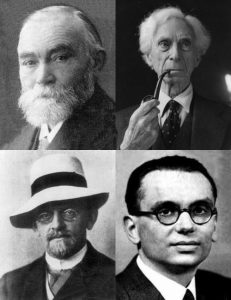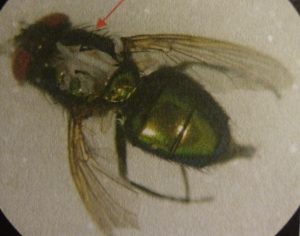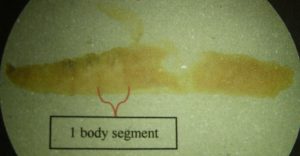Place and Time: Abingdon, January 19, 2017 from 19:00 for 19:30
Barn Room, Crown and Thistle (18 Bridge St, Abingdon OX14 3HS)
TITLE: Rocking the foundations of mathematics: logic, paradox, and the quest for consistency
Mathematics looks like the rock-solid foundations of the  sciences. But is it really as safe and unshakeable as it seems? The development went through some crises and hit upon unexpected paradoxes and problems.
sciences. But is it really as safe and unshakeable as it seems? The development went through some crises and hit upon unexpected paradoxes and problems.
Logicians, philosophers, and mathematicians, among them Gottlob Frege, Bertrand Russell, Kurt Gödel, and Alan Turing have worked on the foundations of mathematics. In the talk I will tell the story of grand programmes, their failures, feuds, and cunning arguments at the intersection of mathematics, logic, computer science, and philosophy.
Speaker: Volker Halbach
Volker Halbach is professor of philosophy at the University of Oxford. He specializes in logic and formal philosophy. For more information on the speaker see here.





